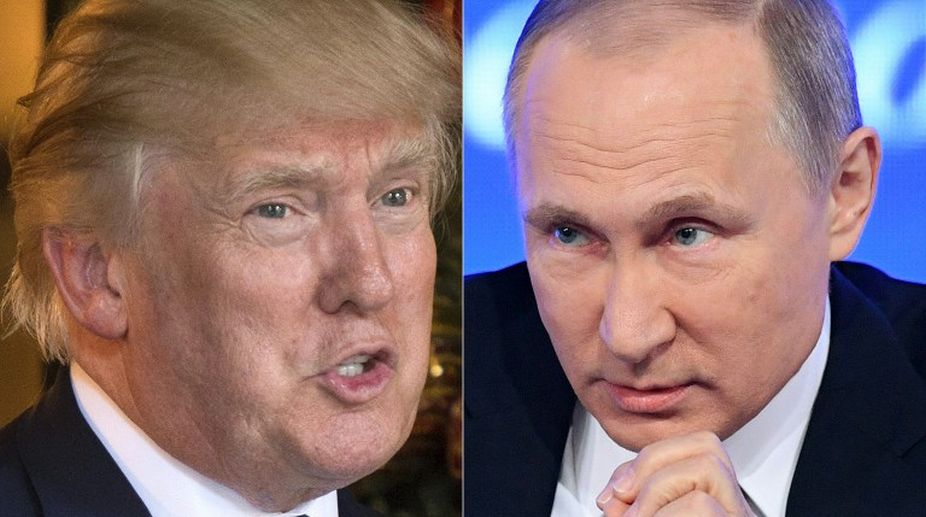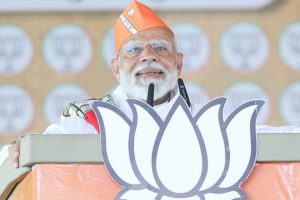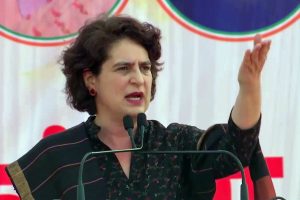Europeans watched with disbelief, just like the Americans of both political parties and the rest of the world, as Donald Trump powered ahead with his rhetoric to win the Republican Party nomination for their presidential candidate and then defeated Hillary Clinton to become the President of the United States.
After the devastation of World War II, the once proud European countries had to accept the US security guarantee to counter the threat of the Soviet Union. The result was NATO that lost its main purpose with the disintegration of the Soviet Union. Efforts were then made to use NATO as the force to defend and extend the interests of the so called ‘western civilization.’ When the resurgence of the Russian Republic under Vladimir Putin with his annexation of Crimea and support to the Russian-speaking rebel groups in eastern Ukraine to secede from Kiev brought back images of the Cold War in Europe, NATO regained its importance, particularly among the former Warsaw Pact countries and the Baltic states.
Germany and France took leading roles in imposing sanctions against the Russians, which were supported wholeheartedly by the Obama administration. In this tense situation Donald Trump declared during the election campaign that NATO was obsolete. Worse still, there were persistent rumours about Russian efforts to hack e-mails of the Democratic Party, ostensibly to help the election of Trump. Then he broke all convention by supporting Brexit, an unprecedented overt intervention in the referendum of an ally, and publicly embraced Nigel Farage, leader of the racist Ukip Party in Britain that was at the forefront of the “Leave” campaign there. Despite the shock of all these incidents, European leaders hoped that Trump would change his rhetoric if, or when, he became the President of the United States and assumed the leadership of the western world.
The belief was that, with the responsibility of office, he would toe the general foreign policy line on Europe as was done by all US Presidents since the end of World War II. But this time it turned out to be different. Trump started making off the-cuff remarks about foreign policy involving Europe that stunned the Europeans, while his cabinet members tried to put a favourable twist to his statements to assuage their feelings.
To be fair to President Trump, he did not talk about dismantling or reinventing NATO after he assumed office. He criticised rightly the European partners for failing to meet their financial obligations to NATO, as did other Presidents before him. Only this time he threatened them with consequence if they did not comply, which the Europeans interpreted to mean the US reneging from its commitment to consider any attack on a NATO country to mean an attack on the US. This could unravel NATO in no time.
His Vice-President, Mike Pence, and Secretary of State Rex Tillerson were alarmed and tried to convince Europeans that the President had no such intention. But they were unable to explain what other consequence the President had in mind. On meddling in European politics, Trump extended his support for Brexit by indirectly endorsing the French ‘white’ anti Islam nationalist Marine Le Pen in her presidential bid in France.
His refusal to take any Syrian refugees while Europe tried hard to accommodate them (the Syrian crisis was not Europe’s creation) was considered highly objectionable in Europe. The real surprise was his constant attack on Germany for its high trade surplus with the US, equating Germany’s trade policy with China’s. No one has criticized Germany for its unfair trade policy before. It seems that President Trump, as the most famous real estate promoter in history, can only think in terms of quid pro quo. Remember that he urged (almost ordered) India to help the US by spending more on Afghanistan’s reconstruction as India runs significant trade surplus with his country. Surprisingly, President Trump stopped his election bombast against China after assuming office, although China has a colossal trade surplus with the US for decades.
The G-20 summit in Hamburg made Europeans really angry when President Trump refused to endorse the Paris Climate Treaty. It was a big achievement against all odds with Europeans, and particularly the host country Germany, taking the lead. Soon after returning to Washington, the US administration distanced itself from the treaty.
But the real bombshell came when, at a meeting in Brussels with EU officials after the summit, Trump called Germany ‘bad, very bad’ and vowed to curb their car export to the United States. In the meantime, Angela Merkel got exasperated with conflicting signals from Washington about the US stand on NATO and relations with Russia. She suggested at an election campaign event that Germany and Europe could no longer rely on the US under Trump and added: “We Europeans must really take our destiny into our own hands.”
A vexing issue throughout has been the relationship with Russia, and constant news from the US about possible Russian involvement with the Trump presidential campaign to help him win the election. Trump publicly declared during the election campaign his intention to improve relations with Vladimir Putin, as noted earlier.
This was even more distressing for the European decision-makers as the xenophobic, racist and nationalist parties of Europe were big fans of Putin as well. As his election campaign managers got more and more entangled with the ‘Russian connection’ and President Trump blamed everybody and every country during his press conference in Warsaw for interfering in elections elsewhere without ever mentioning Putin and Russia, the confusion in Europe was complete.
President Trump’s effort to place neo-Nazis and white supremacists on the same moral ground with the protesters against those bigots in Charlottesville, Virginia, left Europeans gasping. The respected German weekly, Der Spiegel, in an article expressed the feelings of most Europeans thus: “The White House is supposed to be home to America’s moral campus. Instead, though, it currently houses the country’s chauvinistin-chief.”
(The writer is former Dean and Emeritus Professor of Applied Mathematics, University of Twente, The Netherlands)











